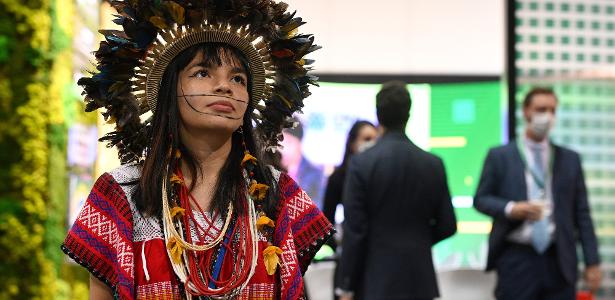
The 26th United Nations Conference on Climate Change (COP26) will announce tomorrow (2) a commitment signed by more than 100 leaders promising to prevent and reverse deforestation and land degradation by 2030. Together, the countries involved have more than 85% forest cover. world and includes Brazil, Canada, the Democratic Republic of the Congo, Russia, Colombia and Indonesia.
To support compliance with the agreement, 12 countries (United Kingdom, Norway, Republic of Korea, Netherlands, Belgium, Denmark, Japan, France, United States, Canada, European Union and Germany) from 2021 to 2025. The idea is to support developing countries in actions such as the restoration of degraded lands, fighting wildfires, and supporting the rights of indigenous communities.
In addition, the private sector has pledged to provide more than US$7 billion (about R$40 billion). CEOs of more than 30 financial institutions have also pledged to eliminate investments in activities related to deforestation. A total of $3 billion (BRL17 billion) is expected to go into innovative finance for the Amazon, Cerrado and Chaco (IFACC) Initiative, aimed at promoting deforestation-free soy and cattle production in Latin America.
The Glasgow Leaders Declaration on Forest and Land Use will be announced this Tuesday morning at an event with world leaders, which will include British Prime Minister Boris Johnson, President of the United States. Joe Biden, and the President of the European Union Commission, Ursula von der Leyen.
In addition to this document, governments that represent 75% of global trade in essential commodities that could put forests (such as palm oil, cocoa and soy) at risk have been issued a new declaration on forestry, agriculture and commodity trade. must sign in which they are committed to a common. Set of actions to provide sustainable trade and reduce pressure on forests. This should include supporting small farmers and improving the transparency of the supply chain.
This is a historic commitment for Colombian President Ivan Duque. “Never before have so many leaders, from all regions, representing all types of forests, joined forces like this and Colombia is committed to doing its part. The ambitious goals of Latin America – and by 2030 Protecting 30% of our land and ocean resources,” he said, adding that this should include partnerships with businesses, the financial sector, small farmers, indigenous peoples and local communities.
hope and apprehension
Anna Yang, executive director of the Chatham House Sustainability Accelerator, celebrated the pact: “The One Deal is a major global effort to stop deforestation. It signals that a deforestation-free supply chain should be the norm – protecting our forests.” An important first step”. However, she points out that, for a long-term solution, “the international community must also help ensure that the socio-economic needs and aspirations of the people living in and around forests are met.”
Joseph Itongwa Mukumo, Coordinator of the Indigenous Peoples and Local Community Network for the Sustainable Management of Indigenous and Forest Ecosystems from the Democratic Republic of the Congo, comments: “We are pleased to see Indigenous peoples outlined in the Forest Agreement. Political and Economic Areas of Communities. We push for a safer tenure, not only because it’s the right thing to do, but because it’s justified – really necessary – in light of the evidence that we represent an effective and unexplored solution to deforestation. What they don’t manage stop on their own”. The Congo Basin is home to the world’s second largest rainforest, which is threatened by industrial logging, mining, and agriculture.
For Simon Lewis, Professor of Global Change Science at University College London, the big challenge is not getting the agreement signed, but fulfilling it. “The fact that indigenous peoples are finally being recognized as the primary custodians of forests is particularly welcome, given the additional funding for rainforest nations and the obligations of consumer countries and companies to clean up their supply chains. The real challenge is not making announcements, but delivering synergistic, interconnected policies and actions that truly reduce deforestation globally. Careful monitoring of the delivery of each initiative is essential for success.”
For Mario Mantovani from SOS Mata Atlantica, it is important that the environmental agenda is creating so much dynamism. “It is very clear today that sustainability and climate issues are no longer just a matter of environmentalists. I see a lot of people here in the economics sector, business people, people I didn’t see in other COPs,” he said. echoes.
In Inaugural Speech at COP 26, In this second (first), indigenous activist Tsai Surui had already defended the urgency of guaranteeing a future with less deforestation. “It’s not 2030 or 2050, it’s now! Indigenous people are at the fore of the climate emergency and we have to be at the center of the decisions that happen here. We have ideas to delay the end of the world,” she said.
a echoes, Txai also stressed the importance of protecting indigenous peoples: “I am here to deliver the message that there is no climate justice without social justice for indigenous peoples. And we protest regardless of the consequences that come out here.” will continue to do so.”
(collaborating Flora Bitancourt and Camilla Camillo from Glasgow, Scotland)



